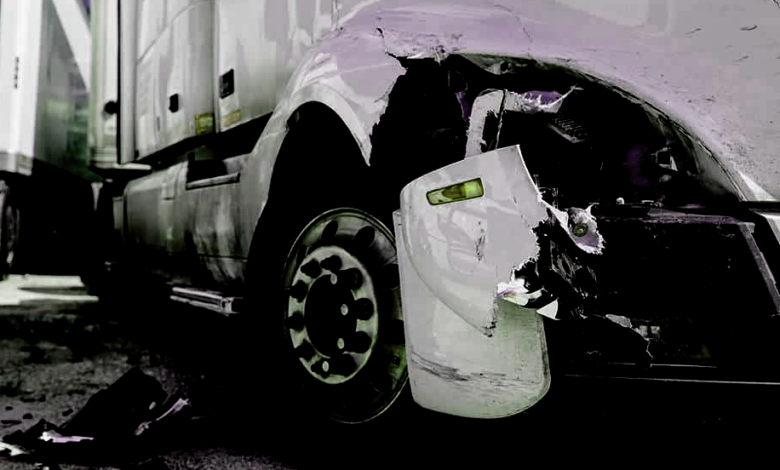
Why You Need a Commercial Truck Accident Lawyer: Navigating the Complexities of Trucking Accidents
The Federal Motor Carrier Safety Administration reports that 5,096 fatal collisions involving heavy trucks and buses occurred in 2018. The same data states that the number of heavy truck and bus injury collisions rose by 8% (from 112,000 to 121,000) between 2016 and 2018.
Commercial Truck Accident
Large commercial vehicles have the potential to seriously injure people due to their size and weight. There are also a range of commercial vehicles, including dump trucks and 18-wheelers. Every commercial vehicle has a unique collection of risks and dangers.
Types of Commercial Trucks
Our roads are home to a wide variety of commercial vehicle types. While some trucks bring supplies to building sites and other locales, others move items across state boundaries. The weight, length, and equipment of these vehicles might vary. The most popular commercial trucks and their attributes are listed below.
Tractor-Trailers
The tractor-trailer is one kind of commercial vehicle that you probably encounter on your daily trip. Tractor-trailers, sometimes known as 18-wheelers or “big rigs,” are designed to move goods and other materials. They may weigh up to 20–30 times as much as a normal passenger automobile and have a high center of gravity. Due to these factors as well as their wide blind zones, tractor-trailers may be involved in severe collisions with other automobiles.
Tow Trucks
When a vehicle is no longer functional, tow trucks move it to another area. You could contact a towing firm to have your automobile towed to a mechanic or collision repair shop when it breaks down or is involved in an accident. Booms, wheel-lifts, and flatbeds are among the towing equipment often installed on tow trucks. A collision with a tow truck might result in fatalities and severe injuries due to their size.
Dump Trucks
Large loads of rubbish, rubble, soil, gravel, or other items are transported by dump trucks and garbage trucks to locations like landfills and building sites. Specifically, trash trucks often drive on residential streets with plenty of bikes, walkers, and other vehicles. Additionally, garbage trucks regularly pull over to pick up trash, which raises the possibility of an accident.
Other kinds of dump trucks are prone to tipping or losing material on the roads, which might endanger other vehicles. This is because they convey big loads.
Tank Trucks
Gases and liquids that are often dangerous are transported using tank trucks, sometimes known as tanker trucks. Anything from dangerous fuel to sewage and cement may be transported in tank trucks. Because of their often round or cylindrical tanks, these vehicles may be more likely to topple over or roll.
In the event of a tank truck accident, hazardous vapors may be released into the air or there may be a fire.
Flatbed Trucks
Building supplies, machinery, and scrap metal are just a few of the enormous items that may be stored in the open trailer of a flatbed truck. Flatbeds lack sides and a roof, thus if cargo is not securely fastened, it might fall off and cause a collision.
Types of Commercial Truck Crashes
Commercial trucks can be involved in a few types of motor vehicle crashes:
- Rollover: The majority of commercial trucks are more likely to flip over due to their weight. In a rollover, the truck driver may lose control of the vehicle and it may roll on its side, whether as a result of speeding or a tire rupture.
- Jackknife Accident: When a truck’s trailer swings outward, making a 90-degree angle with the cab, a jackknife disaster occurs. These collisions often occur on highways when traffic is moving more quickly. Poor road conditions or a mechanical issue may also cause a commercial truck to lose control and jackknife.
- Wide Turn Crash: A huge truck’s trailer may swing to the left or right when a driver makes a broad motion to turn the vehicle. A major car collision may occur if the driver misjudges the turn or if other drivers are unaware that the truck is turning.
- T-Bone Accident: When the front of one car strikes the side of another (either the driver’s or passenger’s side), it results in a T-bone collision. Due to their size in comparison to smaller vehicles like automobiles, T-bone incidents involving commercial trucks may be especially devastating.
- Blind Spot Accident: Large blind spots that run along both sides of the vehicle as well as in front and behind are a common feature of many commercial vehicles, including 18-wheelers. If another car is in a trucker’s blind area and cannot be seen, an accident may result.
Read More : The Importance of Consulting a Car Fire Accident Lawyer After an Incident
The driver of a commercial truck as well as other drivers and passengers may suffer catastrophic injuries in a collision. Traumatic brain injuries, neck injuries, fractured bones, spinal damage and paralysis, and even death are examples of injuries.
Causes of Commercial Truck Collisions
Each situation of a Commercial Truck Accident is unique. A truck accident may be caused by a variety of factors, including the truck driver’s negligence or that of another driver. Typical reasons for truck accidents include:
- weather (including snow, ice, rain, and sleet);
- Hazards in a construction zone;
- Inexperienced truck drivers;
- Truck driver fatigue;
- Negligent and/or reckless driving;
- Unsecure cargo;
- Hazardous roadways (potholes and other impediments); and
- Mechanical failures.
You could be eligible for compensation if you were hurt by a commercial truck of any sort. Following a major collision, victims of truck accidents may have a range of emotional, physical, and financial difficulties. You may seek compensation from a personal injury attorney for pain and suffering, lost income, medical costs, and other interruptions in your life brought on by your injuries.








3 Comments